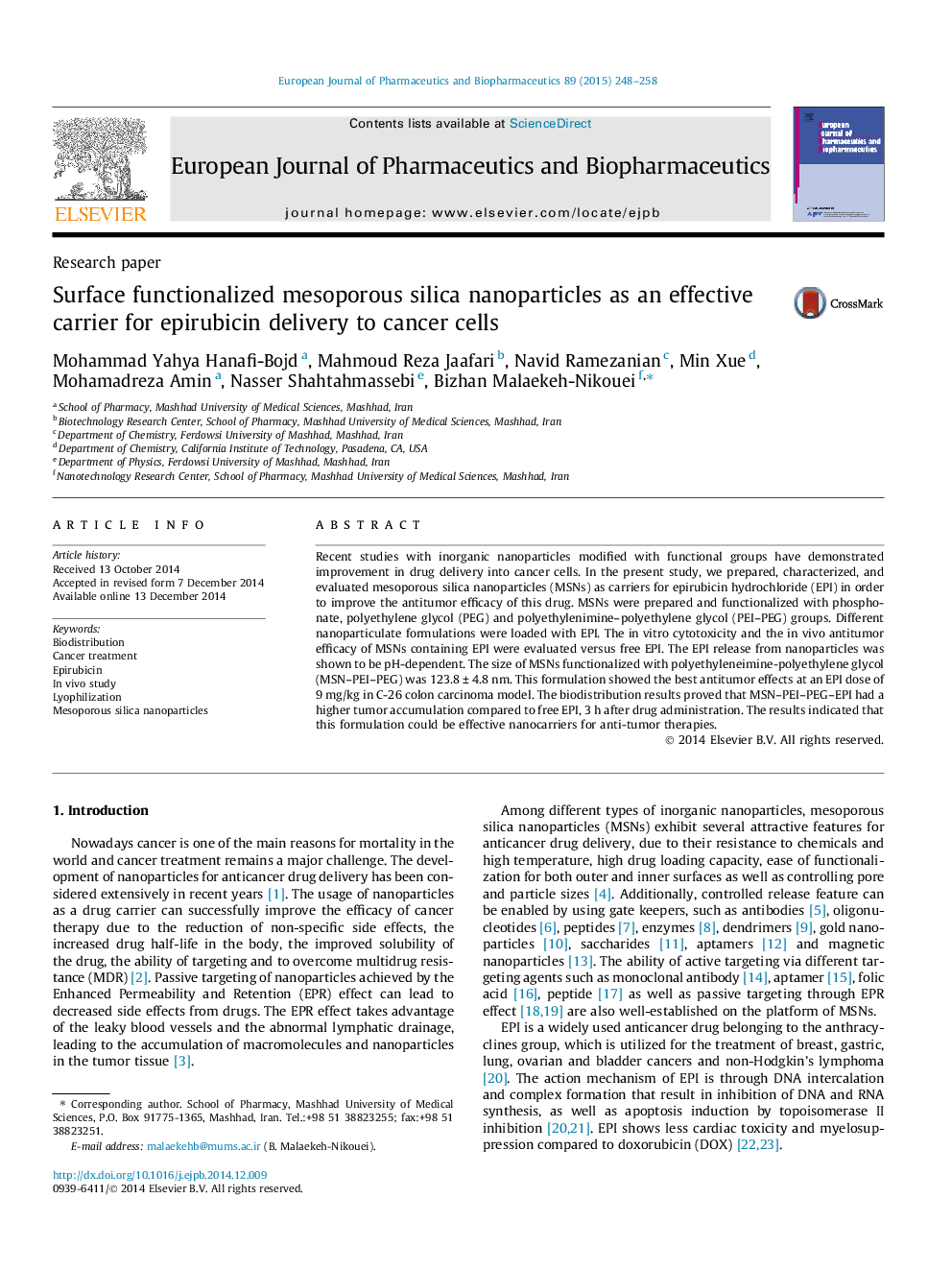| Article ID | Journal | Published Year | Pages | File Type |
|---|---|---|---|---|
| 2083446 | European Journal of Pharmaceutics and Biopharmaceutics | 2015 | 11 Pages |
•Mesoporous silica nanoparticles containing epirubicin were prepared.•Drug release pattern was pH- and time-dependent.•Functionalization of nanoparticles improved the antitumor effects of carrier.
Recent studies with inorganic nanoparticles modified with functional groups have demonstrated improvement in drug delivery into cancer cells. In the present study, we prepared, characterized, and evaluated mesoporous silica nanoparticles (MSNs) as carriers for epirubicin hydrochloride (EPI) in order to improve the antitumor efficacy of this drug. MSNs were prepared and functionalized with phosphonate, polyethylene glycol (PEG) and polyethylenimine–polyethylene glycol (PEI–PEG) groups. Different nanoparticulate formulations were loaded with EPI. The in vitro cytotoxicity and the in vivo antitumor efficacy of MSNs containing EPI were evaluated versus free EPI. The EPI release from nanoparticles was shown to be pH-dependent. The size of MSNs functionalized with polyethyleneimine-polyethylene glycol (MSN–PEI–PEG) was 123.8 ± 4.8 nm. This formulation showed the best antitumor effects at an EPI dose of 9 mg/kg in C-26 colon carcinoma model. The biodistribution results proved that MSN–PEI–PEG–EPI had a higher tumor accumulation compared to free EPI, 3 h after drug administration. The results indicated that this formulation could be effective nanocarriers for anti-tumor therapies.
Graphical abstractFigure optionsDownload full-size imageDownload high-quality image (110 K)Download as PowerPoint slide
